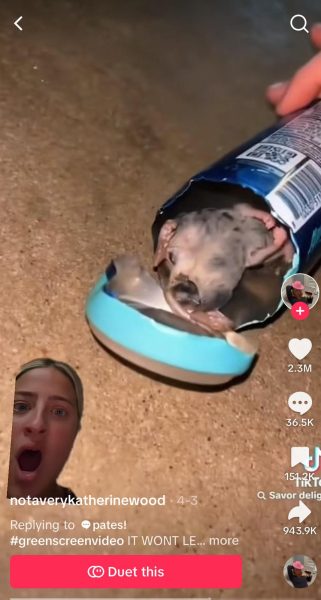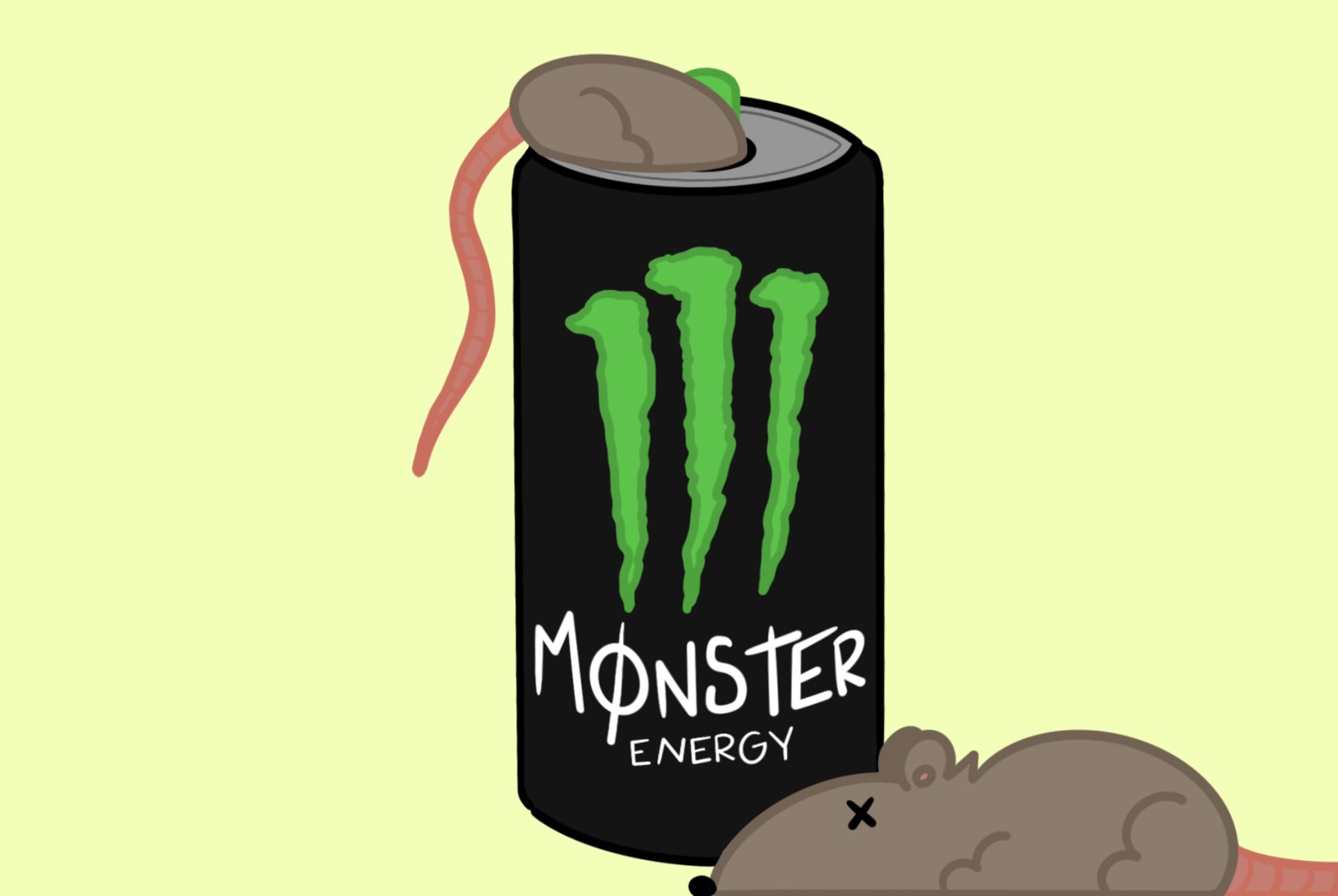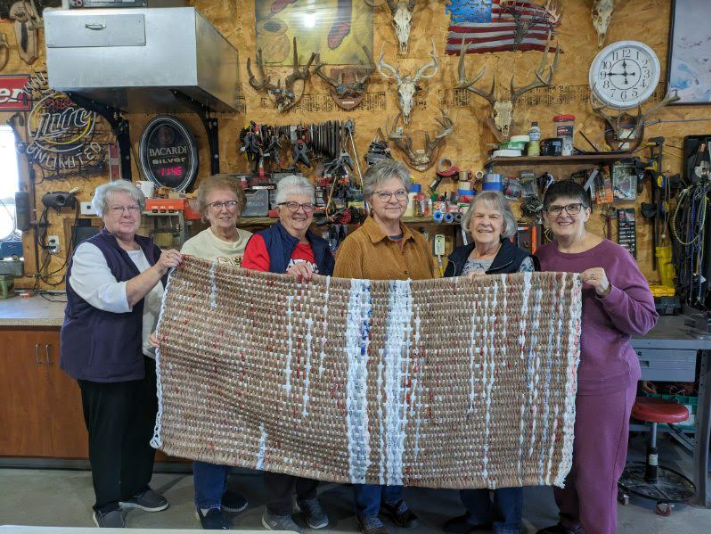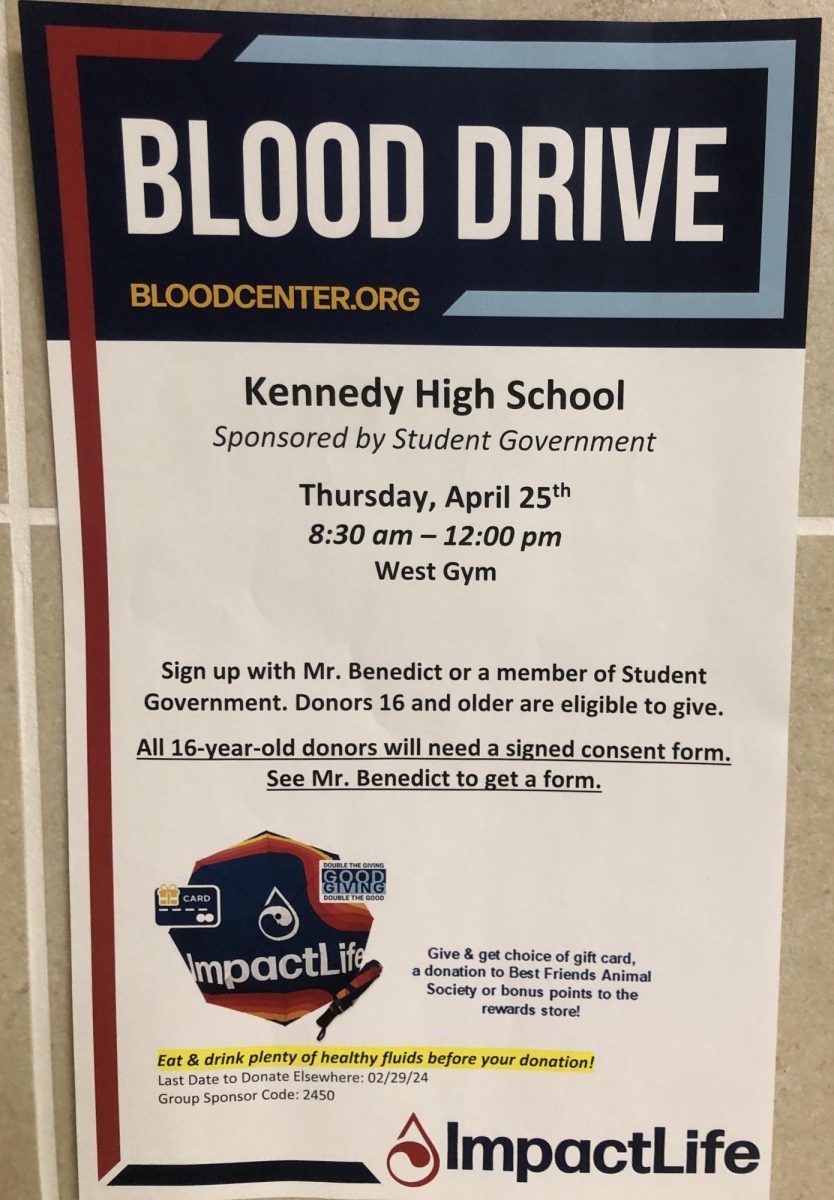Consumers display a concerning habit of failing to research the killer ingredients in their store-bought, processed drinks before consuming them. A range of Gatorade flavors contains Yellow 5 or Red 40—both have been banned in European countries after being linked to cancer and various health concerns for young children. Coca-Cola contains phosphoric acid—a common ingredient in soda and is corrosive to metals. How about rats? Are you aware of the vermin found in your drinks?
Alani Nu is an energy drink brand that was founded in 2018. The company targets consumers between the ages of 20 and 40 who prioritize fitness and are health conscious. This popular drink contains sodium calcium edetate, which is used in lead poisoning treatments.
On April 3, 2024, TikTok user @notaverykatherinewood shared a video of a dead mouse someone found in an Alani energy drink. Since then, hundreds of videos have followed reacting to the post.
The video discussed the Alani mouse incident, which received 1.3 million views. Commenters were unable to find the original video Wood reacted to. Wood responded to commenters by making another post, sharing the original video, and stating “It won’t let me tag the creator”. Wood claims Alani has managed to shadow-ban the original user on TikTok.
Shadow-banning blocks other users on the platform from viewing an account but doesn’t officially stop the “banned” account from posting. If Alani had TikTok silence the girl who found a rat in their drink, was it to stop fake news from spreading, or is there truth behind it?
Wood’s second video received 18.9 million views. Using the original video, she showed a girl opening a closed Alani can to reveal a dead mouse.

Dead mouse found in an Alani energy drink
Alani isn’t the only company trying to keep people quiet. In 2016, a man named Jordan Bell claims he found a dead mouse at the bottom of a NOS can. After attempting to sue the company, a Supreme Court claim states Coca-Cola offered Bell merchandise following the complaint.
2016 must have been an off-year for soda company’s health inspections. Another lawsuit regarding Coca-Cola entailed a man from South Dakota claiming he found a mouse in his soda can. He attempted to sue the company after becoming ill, missing 60 hours of work and accumulating $1,000 in medical bills.
Defense attorneys for Coca-Cola disputed the claim, stating that if a mouse were to have been found in the bottle, it would have been in a more serious stage of decomposition. The case ruling was privately disclosed.
Pepsi Co. took an identical defense in a 2012 lawsuit when a man from Illinois named Ronald Ball found a deceased mouse in his Mt. Dew. Ball claims he sent the remains to Pepsi Co. for testing where they “destroyed” the evidence.
Ball filed a lawsuit for $50,000 in damages. Defense experts stated, “the mouse would have dissolved in the soda had it been in the can from the time of its bottling to the time that the plaintiff drank it.”
The case was later settled out of court for an undisclosed amount. These outlandish cases appear to have a pattern of private rulings; Is it because the lawsuits are true, or because they don’t want false claims receiving attention? If the lawsuits were overruled, why wouldn’t the companies publicize that?
The defense of drinks dissolving rodents may have won these companies the battle, but lost the war. If Coke and Mt. Dew can dissolve rodents, is that something you want to put in your body?
Youtube channel Esteem Education Co. posted a video to their account stating, “In response to the story that someone found a mouse in a can of Mt. Dew and the disturbing response from Pepsi, we put the situation to the test.”
The video contains a 37-day experiment where a dead rat was placed into a jar filled with Mt. Dew and then sealed. Over the month we can see the disintegration of the rodent, as debris chunks of the carcass break off and discolor the solution.
Pepsi has a vermin-related history dating back to the 1990s. In 1994, an Orange County woman named Maria Del Consuelo Lazaro found a dead mouse inside her Diet Pepsi can. The Food and Drug Administration (FDA) revealed that the rotting rat was an isolated case, how it got in there was a mystery to them.
“We did find the rat in the can,” FDA spokesperson Rosario Quintanilla-Vior said. “It was in pieces, but it was there.”
Following this press statement, the FDA issued neither a warning to Pepsi nor the public. Good to know that as consumers we are a top priority.
The case was closed due to failure to contact Lazaro and speak with her directly. An FDA spokeswoman also stated that the language barrier between Lazaro, a Mexican woman, discouraged the investigation. After consumption, Lazaro sought psychological counseling for a fear of eating that stemmed from this trauma.
In a 2010 lawsuit, a man from Washington sued Hansen Beverage Company when a dead mouse was found in his Monster Energy can. The mouse was tested in a Seattle-based lab, where they concluded that the death of the mouse had no involvement with trauma or poison, leading to the conclusion that it died in the can. Hansen Beverage Company declined to comment on the lawsuit, which was, of course, privately disclosed.
No court ruling regarding these incidents has been made public by these companies because they don’t want you to know what is happening. Not that it matters though. Will this article turn you away from an energy pick-me-up at the gas station? Will you decline a soda at your next family gathering? Does the Mt. Dew slogan “It’ll tickle your innards” give you a new sickened feeling?




































Ken Brannen • Apr 23, 2025 at 6:53 pm
Does anyone know who to contact In regards to this
This morning my wife found a rat in her alani energy drink
We are mortified and in shock